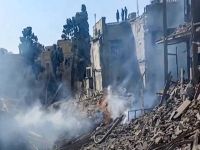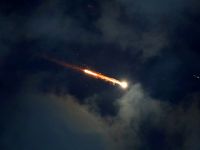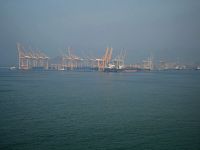EEG organizes 3rd Community Lecture 2011
As 2011 has been declared as the International Year of Forests by the United Nations, it was an obvious theme for EEG’s 3rd Community Lecture for the year. The Lecture was given by Prof. Sa’eb AbdelHalim Khresat, who is currently the Chief Technical Advisor of the United Nations Country Team for the Adaption to Climate Change Project in Jordan.
The lecture started with the warm welcome from EEG Chairperson, Mrs. Habiba Al Marashi, to the dynamic mix of audience who attended the event which included representatives from the corporate, government, academic sectors, individuals and families from across the UAE communities. Mrs. Al Marashi provided an update of the events concluded by EEG in the previous month such as the Annual Gala Dinner and the Teachers’ Workshop.
She called on the audience once again to encourage their friends and families to participate in the upcoming EEG Can Collection Drive in the month of May.
She also provided a brief of the recently concluded training program by the Arabia CSR Network, which highlighted the methodology that puts value in terms of social, environmental and financial returns of every investment or undertaking of an organization.
Prof. Sa’eb Khresat, who’s Lecture was named “Save Our Forests” focused on the close relationship between humans and nature. The presentation began with the lines, “We humans may consider ourselves to be at the centre of creation, yet we are also closely linked to nature.”
He told the audience that forests are home to over 80% of terrestrial biodiversity and that the destruction of these ecosystems can lead to the loss of 100 species per day or more! It is also a proven fact that forests are useful in building resilience to natural disasters and encourage soil and water conservation, avalanche control, sand dune stabilization, desertification control and coastal protection.
Considered as the main providers of food security, forests also support wildlife, resources and humans in more ways than one.
According to Prof. Khresat, the region’s forests and woodlands have suffered from a long history of degradation and overexploitation. Extensive land clearing for human settlements and agriculture in mountainous areas along the coasts of the Mediterranean in Lebanon and Syria has been carried out throughout history.
In a section of his presentation, Prof. Khresat spoke about the percentage of forests lost in a number of the Arab countries – 60% lost in Lebanon between 1972 and 1994 and 15% in Occupied Palestine Territories in 1980s and 1990s. However, it was heartening to see that there was a 32% increase in the forest area in the UAE according to the FAO 2001.
Prof. Khresat went on to talk about the mentions of tree planting and forests in Islam. A famous Hadiths of the Prophet (Peace be upon him) here is, “If you have a sapling, if you have the time, be certain to plant it, even if Doomsday starts to break forth.”
This was followed by a question and answer session where the audience asked some interesting and insightful queries to Prof. Khresat.
Mrs. Al Marashi provided the vote of thanks, which included the presentation of a crystal as a token of EEG’s appreciation to Prof. Khresat.
Background Information
Emirates Environmental Group
EEG is a professional working group devoted to protecting the environment through the means of education, action programmes and community involvement. Established in 1991, it has witnessed phenomenal growth in terms of membership, programmes and partnerships over the past two and a half decades.






